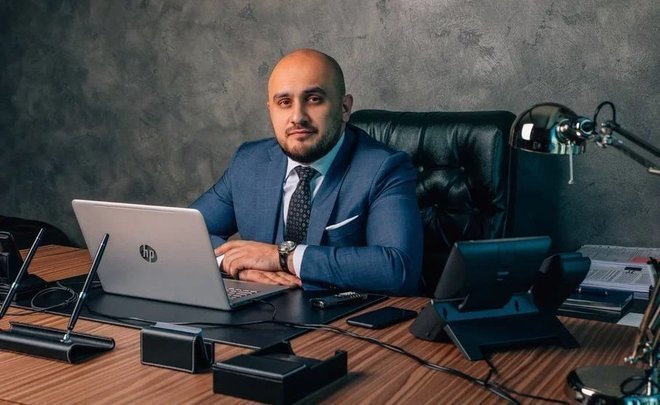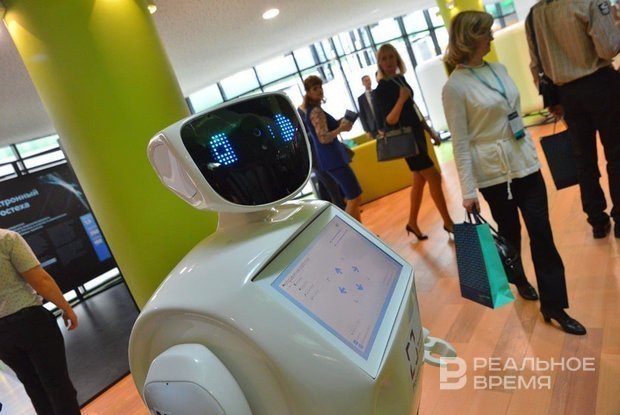Alim Bishenov: ‘Books written by artificial intelligence are going to appear in our library soon’
How to avoid an intellectual war with machines and what problems businesses may face in the future

A novel with an equally fantastic title “The Day A Computer Writes A Novel” got into the final of the Japanese literary award named after famous science fiction writer Hoshi Shinichi. Already today, 70% of lawyers believe that disputes over copyright violations using artificial intelligence algorithms may soon become the most popular problem. According to a study by the Moscow Digital School educational platform, more than 60% of lawyers also consider it necessary to start legislatively regulating the field of artificial intelligence (AI) in Russia. Alim Bishenov, the founding partner of the Bishenov& Partners law firm, discusses in a column for Realnoe Vremya how to avoid an intellectual war with machines and what problems businesses may face in the future.
Weak base
If the field of AI is not regulated by law, it is quite obvious that in the near future there will be problems in the field of copyright infringement of works created with the help of AI, as well as information leakage and malicious actions using AI in the absence of appropriate sanctions and controls. But one can't just come up with a regulation limiting the activities of people using AI out of your head.
Speaking about the legal basis of the future legislative process or similar cases, it should be noted that specifically in Russia, the history of legal practice in relation to intellectual property law has existed for a very short time, even compared to other European countries. The first copyright provision dated back to 1828. Nevertheless, by the end of 2021, the number of copyright lawsuits for photographic productions alone and in Russia alone has increased by more than 40%, exceeding 400 acts, and the total amount of the claims amounted to more than 100 million rubles (this is slightly less than 2 million US dollars at the exchange rate of 2021). At the same time, it is necessary to note the sporadic and specific nature of intellectual property protection cases. So, the litigation initiated by Soyuzmultfilm against both other companies and individuals for the illegal use of trademarks and characters have been one of the most prominent in recent years.
The growth rate of the number of cases in connection with copyright infringement shows an increase in the number of disputable situations — on the one hand, on the other — the scope of disputes, the nature of specific claims, as well as the magnitude of claims show that this direction in Russia is rather just being formed — in our country, in principle, a poorly developed base and practice of such cases. Not to mention such complex and controversial issues as the regulation of the use of AI.

For comparison: in the United States, the number of copyright infringement cases for the same year 2021 reached 57,287. Of these, 36 received an indictment, the average amount of the fine was $230 thousand, while more than 30% of the fines exceeded the amount of $1,5 million. And these are only cases concerning copyright and trademarks. It is important to emphasise that a significant number of cases in the United States related to intellectual property infringement relate to inventions, patents, and business models. Patent trolling (a business aimed at registering very general patent applications to blackmail a real manufacturer) is a separate multibillion-dollar type of business in the United States. The emergence of AI in this segment in the United States threatens really large-scale problems for both businesses and the judicial system. Due to the underdevelopment of the copyright market in Russia and in the absence of such significant intellectual property objects, AI is not so terrible.
Ambiguous evil
But even with threats from AI, not everything is so clear. The situation is complicated. Among non-professionals, it is widely believed that AI is an unambiguous evil, the use of which is associated exclusively with risks and costs for creators, copyright holders. There are two points here: technical and economic. AI can be considered as a computer program — that is, a collection of data and commands presented in an objective form, aimed at achieving a certain result (including both preparatory materials and called audiovisual displays). Based on the description in Article 1261 of the Civil Code of the Russian Federation, artificial intelligence in domestic legislation appears to be a human tool.
It is as an AI tool in the near future that it is one of the most important factors for ensuring labour productivity growth. Currently, AI is more developed in the banking sector, call centres, trade, and E-commerce. But already now there are examples of the use of AI in the field of fundamental scientific research — new materials, pharmacology. In this sense, both as a technological innovation and as a tool for creating economic value, AI is a boon. The question is how and for what purposes specific individuals and companies use it.
Today and tomorrow
Lawyers even in Russia today quite often discuss legal issues related to artificial intelligence and the sale of products produced with its help. So far, when drafting contracts, we use similar ones that are used in the implementation of other electronic products, for example, such as applications for smartphones. But the world does not stand still, the economy of most states depends on modern digital technologies. So whether we want it or not, general development trends are moving towards the use of AI in all areas.

In this context, it is necessary to attend to the development of really working and relevant legislative norms that will not only protect copyright holders from possible violations using AI, but also allow technology not to be shelved under the pressure of legal restrictions, to become a tool that will allow the economy to develop.
Reference
The author's opinion may not coincide with the position of the editorial board of Realnoe Vremya.